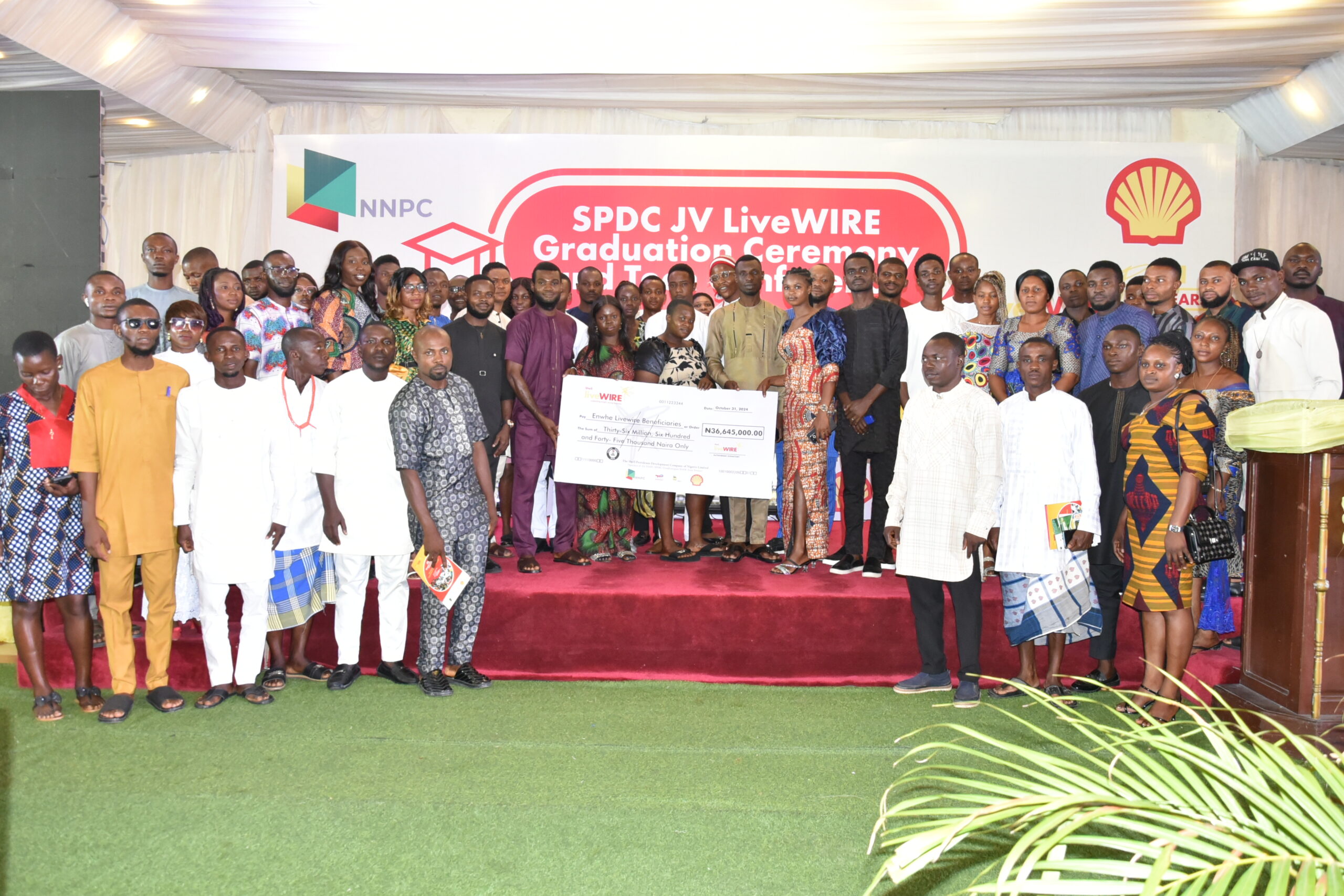Business
Oil slump: Nigeria targets self-sufficiency in food production

LAGOS-There has been a renewed emphasis on local food production in recent times owing to the continued slip in oil prices globally and t he resultant devaluation of the local currency.
he resultant devaluation of the local currency.
All over the country, there has been a return to the agricultural sector which hitherto lay dormant while Nigeria savoured oil wealth. But with the oil almost trickling to a stop, the country has suddenly been roused to its former source of wealth; agriculture and food production.
A major foreign exchange earner in the 1960s and 1970s, the sector has featured in various development plans spanning 52 years, starting from the 1962-1968 development plan which was Nigeria’s first national plan and culminating in recent efforts of the President Goodluck Jonathan’s administration.
According to an economic analyst, Professor Sherifdeen Tella, the sudden drop in the price of crude oil was what Nigeria needed to jolt it back to the reality of the importance of agriculture. Tella had urged total dedication to the sector, saying that the government and people of Nigeria should not see the situation as a temporary one.
In the same vein, Bismark Rewane was optimistic that if there was commitment on the part of people and the government, it was possible for Nigeria to be self-reliant and comfortably support the economy with earnings from the non-oil sector.
Since June 2014 when the price of crude oil started falling from its peak of $115 per barrel, and continued its downward spiral, analysts have not ceased to call on the government and stakeholders to urgently consider diversifying the economy.
In a swift response to the situation, the Federal Government has, since last year, embarked on far-reaching agricultural programmes meant to boost local food production.
In October, the government approved the Nigeria Agricultural Transformation Agenda Support Programme which was proposed a year earlier.
Details of the plan published on the African Development Bank online portal, included a two-phased programme that consisted of an initial phase of three years to put in place, the delivery and institutional mechanisms through a learning by doing and piloting approach.
Other reforms have since followed the ATA in quick succession as the global oil benchmark keeps edging towards the $40 mark. From all indications, agriculture has become a central focus of the economy being the major foreign exchange earner apart from oil.
The Minister of Agriculture, Dr.Akinwumi Adesina, believes that things have been moving so fast in the sector that come 2017, the country will achieve self-sufficiency in food production.
Adesina said the success recorded in the cassava sub-sector was a strong indication that Nigeria was on its way to food self-sufficiency. He noted that the country had done extremely well in food production, adding that food import bill went down from 1.1trn in 2009 to N697bn by the end of December, 2013.
He told our correspondent, “Today, Nigeria is the largest producer of cassava in the world. The goal of the government is to make Nigeria the largest processor of cassava in the world. We are doing that in four ways; first, we are working to transform cassava into starch that can be used by industries.
“An American company which is the largest food processor in the world will be investing about $200bn in Alape, Kogi state for the establishment of 64,000 metric ton-starch plant and a 43,000 metric ton-sweetener plant. These two plants will transform cassava into starch and sweetener to replace the sugar that we are currently importing.”
The minister also said that the government was working with Coca Cola, Nigeria Breweries, Unilever as well as Flour Mills of Nigeria, to begin production of high quality cassava syrup that will be coming from the Alape plant.
Adesina also expressed support for the new rice policy of the Federal Government, describing it as another project that was sure to liberate the country from dependency on food importation. He was also optimistic that with the volume of rice being produced locally every year, the country would be able to export the commodity in three years.
The only problem with the policies, as laudable as they are, is that they are coming too late according to analysts, considering the fact that the general elections are in February and some of the policies have not been given legal backing to protect them from alteration or discontinuation by another government.
Last year, the Trade Commissioner and Managing Director, Japan External Trade Organisation, George Sato, told our correspondent that Nigeria had put in place good policies that had been attracting foreign investors to the nation.
He said, “All that the Japanese companies want is stability and consistency. After the 2015 elections, the current good policies should remain and continue. If there is sustainability and consistency, we will bring more Japanese businesses here.
According to the President, Rice Millers Association of Nigeria, Tunji Owoeye, if anything should happen to stop the rice policy, it would spell doom for Nigeria as a nation. Owoeye said stakeholders across the rice value chain had already made long-term investments and signed performance bonds running into billions of naira in the sector.
He told our correspondent in an interview, “If these projects and policies are not continued, it is going to spell disaster for Nigeria,”
Owoeye remarked that the only way to ensure continuity of the policies was to pass a legislation in the chambers to make it a national law. He added that another way of ensuring continuity would have been for the current administration to continue beyond February 2015.
An analyst and the Country Director, Harvest Plus, Mr. Paul Ilona, echoed Owoeye’s concerns. Ilona was of the opinion that with the current energy and dedication given to food production, the country was certain to be self-sufficient very soon.
According to him, the challenge will be in sustaining the current growth.
Another problem that has been providing a conduit for illegal importation is that local food production is still far from meeting the demand of Nigerians.
PUNCH-
Business
Nigeria’s Economy Shows Resilience With 3.46% GDP Growth In Q3 2024
Nigeria’s Gross Domestic Product (GDP) grew by 3.46% year-on-year in the third quarter of 2024, marking a strong performance compared to the 2.54% growth recorded during the same period in 2023 and 3.19% in Q2 2024, according to the latest data from the National Bureau of Statistics (NBS).
The growth was largely fueled by the services sector, which expanded by 5.19% and contributed 53.58% to the overall GDP.
READ MORE: Reps Debate Tinubu’s Loan Request
“The performance of the GDP in the third quarter of 2024 was driven mainly by the services sector,” the NBS stated in its report.
Key areas in this sector, including financial institutions, telecommunications, and trade, played significant roles in the economy’s growth.
The agriculture sector, while still positive, showed a slight slowdown, growing by 1.14%, compared to 1.30% in Q3 2023.
The industrial sector, however, posted a notable recovery, increasing by 2.18%, a marked improvement from the 0.46% recorded in the same quarter of 2023.
In nominal terms, Nigeria’s GDP at basic price for Q3 2024 reached N71.13 trillion, a substantial 17.26% increase from the N60.66 trillion recorded in Q3 2023.
“This performance is higher when compared to the third quarter of 2023, which recorded an aggregate GDP of N60,658,600.37 million, indicating a year-on-year nominal growth of 17.26%,” the NBS added.
The non-oil sector also showed strong performance, growing by 3.37% in real terms during Q3 2024, outperforming the 2.75% growth seen in the same quarter of 2023 and exceeding the 2.80% growth recorded in Q2 2024.
“The sector was driven in the third quarter of 2024 mainly by financial and insurance (financial institutions); information and communication (telecommunications); agriculture (crop production); transportation and storage (road transport); trade; and construction, accounting for positive GDP growth,” the NBS explained.
Despite the growth in the non-oil sector, its share of the total GDP decreased slightly to 94.43%, compared to 94.52% in Q3 2023, though it remained higher than 94.30% in Q2 2024.
The oil sector, in contrast, recorded a 5.17% year-on-year growth in Q3 2024, reversing the -0.85% decline seen in the same period in 2023.
However, growth slowed from the 10.15% recorded in Q2 2024. The NBS reported that Nigeria’s oil production averaged 1.47 million barrels per day (mbpd) during the third quarter, a slight increase from 1.45 mbpd in Q3 2023 and 1.41 mbpd in Q2 2024.
Business
How Family-Owned Businesses Drive Global Economic Success – Halima Dangote

Family-owned businesses (FOBs) can continue to drive economic success, create value for shareholders, and positively impact their communities worldwide by staying true to their core values and adopting strategic practices that prioritise long-term growth, efficiency, and resilience.
This was part of the submission made by the Group Executive Director of Dangote Industries Limited, Halima Aliko-Dangote, during the Forbes Global CEO Conference in Bangkok, Thailand.
Halima, who is also the Executive Director, Family Office, spoke at the panel session on Family Business: Looking at the Next Frontier, opined that family-owned businesses have demonstrated exceptional resilience, navigating challenges and thriving over multiple decades.
Other speakers include the Managing Director and CEO of Worldwide Hotels, Carolyn Choo; the Managing Director of Damen Yachting, Rose Damen, a third-generation family shareholder of Damen Shipyards Group; and Co-Chairman of B.GRIMM Pharma, President of B. Grimm Joint Venture, and Board Member of B. Grimm Power, Caroline Link.
ALSO READ: CSR: Dangote Cement Fuels Education With Support Projects At Lagos Schools
According to her, success in family-owned businesses starts with shared values, goals, governance policies and alignment adding that reputation is part of ‘family capital’.
She maintained that governance structure, adherence to core values, customer satisfaction, optimization of shareholder value, meritocracy, integrity, leadership, brand equity, diversification/growth, philanthropy and preserving generational wealth play key roles to the success of our businesses.
Halima revealed that Dangote Group’s governance policies do not allow board and management to operate in silos as each business unit has at least three independent directors who offer a holistic view.
On other factors of success for Dangote Group, Halima emphasized, “We family-owned businesses have to stick to our tradition of asset rich-cash moderate or as my father will correct me, asset rich-cash poor. We as Dangote perpetuate a profitable business with strong values and strong governance structure. We make money while building our nation by contributing heavily to the global economy, creating massive jobs, thinking of our great grand kids and contributing excessively to humanity.”
Highlighting the significant contribution of FOBs to the global economy, Halima noted that studies by Mckinsey showed that they account for more than 70% of global GDP, generate annual turnovers of between $60 trillion and $70 trillion, and provide around 60% of global employment.
She stressed the crucial role these businesses play in creating jobs, sustaining communities, and driving development in sectors such as manufacturing, education, healthcare, and infrastructure across the world.
“Family-owned businesses (FOBs) have proven to be resilient, weathering challenges and thriving across multiple decades. Despite facing external pressures, many FOBs not only survive but also grow, contributing significantly to the global economy in ways that are often underestimated or overlooked,” she said.
She also pointed out that family-owned businesses often employ two key approaches in preparing the next generation for leadership roles: internal and external capacity building. Regarding internal capacity building, Halima explained that many families create internship programmes for young family members interested in taking over the business or assuming leadership positions.
“In Nigeria, we train the next generation so they can grow organically to leadership roles in family businesses. My dad’s approach is for you to start from ground up knowing you will get to leadership role if you work hard and do your job right. These experiences make it easier for you to learn the ropes and be prepared for leadership role in the future,” she pointed out.
On external capacity building, Halima discussed the practice of sending younger generations to work in non-family businesses. This approach enables them to acquire new skills, learn better processes, and gain diverse perspectives that can benefit the family business in the long run.
Halima revealed that she started her career as an Analyst at KPMG before joining Dangote Industries Limited.
The approach, she explained “removes the familiarity tag as the young generation got employed as other people and supervised to monitor their performance. This has been a common avenue business families have chosen to pursue for many years, having their next generation spend three to five years working outside the family business before eventually joining with a new set of skills and business knowledge.”
Addressing the challenges of succession planning, Halima emphasised the importance of involving the younger generation in the business early on.
She suggested that this creates a space for open communication, where the next generation can share their thoughts, ideas, and aspirations, while the senior generation provides critical information to help the next leaders make informed decisions.
She stressed the need for a balance between tradition and innovation in family-owned businesses. While tradition provides continuity and stability, she noted that innovation is vital to staying relevant and competitive in the modern marketplace.
“Successful family businesses recognise the need to adapt to changing consumer preferences, technological advancements, and market trends. Family businesses often have a wealth of experience and deep-rooted traditions. They can also benefit from external expertise and fresh perspectives,” she concluded.
Business
Shell LiveWIRE Initiative Empowers 9,000 Niger Delta Youths With Entrepreneurial Skills

A total of 9,000 youths in the Niger Delta have acquired entrepreneurial skills under the LiveWIRE programme of The Shell Petroleum Development Company of Nigeria Limited (SPDC) since it was introduced in 2003 as part of efforts to boost employment opportunities among people aged 18 – 35 years.
It was gathered that the recipients were trained and supported with start-up grants and business mentorship enabling them to launch their own businesses and become employers of labour.
The latest training, sponsored by the SPDC Joint Venture which includes the Nigerian National Petroleum Company Limited, TotalEnergies and Nigerian Agip Oil Company, involved more than 1,000 young entrepreneurs from host communities in Rivers, Bayelsa and Delta states. They graduated last week in Port Harcourt having developed business plans and pitched them to experts as part of the training. 654 trainees were selected as best-performers.
ALSO READ: CSR: Dangote Cement Fuels Education With Support Projects At Lagos Schools
“We’re delighted at the success of the LiveWIRE programme,” SPDC Director and Head Corporate Relations, Igo Weli, said at the graduation ceremony. “This training is set aside for young people from our host communities which means they can also enjoy the benefits of the programme and join the teeming number of entrepreneurs, several of whom now have the chance to participate in SPDC’s business as vendors. LIveWIRE is one of many ways through which Shell and her partners are powering progress in Nigeria.”
The graduation ceremony featured a technical conference with the theme, “Unlocking Growth: Leveraging Policies to Build an Inclusive Tech Eco System in the Niger Delta.” The keynote speaker, Iyke Kemabonta, and panelists, Soala Jumbo, Davies Awongo, Kalada Briggs, Vivien Ene and Ezieke Amaefula, challenged the beneficiaries to grow their businesses, overcome environmental challenges and enable the Niger Delta to reap the rewards of the programme.
Trainees from the 2023 Regional LiveWIRE programme from Rivers, Delta, Bayelsa, Imo, Abia, Akwa Ibom, Cross River and Edo states also joined the graduation ceremony. Beneficiaries were inducted into the LiveWIRE Alumni Group by three previous participants who now run their own businesses — Precious Adeho, Queen Esther Bolou-Ebi and Kalada Briggs. The trio encouraged the recipients to use the opportunity as launching pads into international recognition and success.
In a notable achievement, five previous beneficiaries won the LiveWIRE International “Go and Trade Enterprise Linkage Award” which enabled them to embark on trade visits to London, Dubai, Malaysia, and neighboring Ghana. Livewire Nigeria also offers beneficiaries the chance to compete for the Global Shell LiveWIRE Top Ten Innovators Award which comes with huge rewards.
LiveWIRE is Shell’s global enterprise development initiative for small businesses and is active in 18 countries. As at 2023, the programme had trained about 3,400 people and helped create more than 1,200 jobs around the world.












